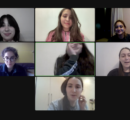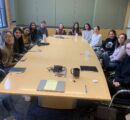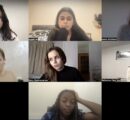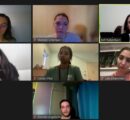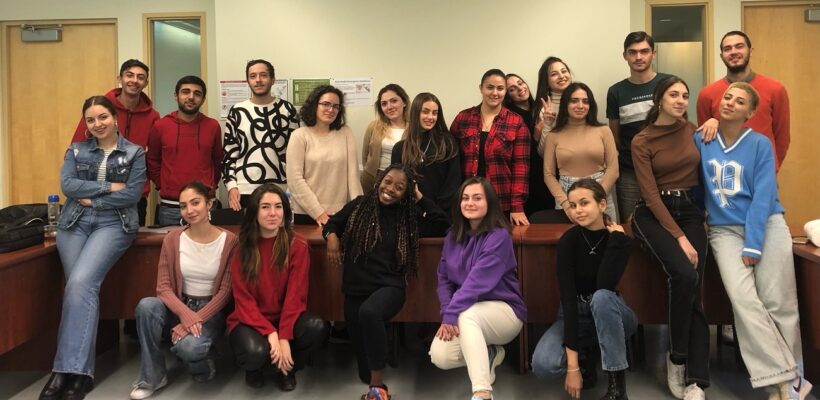
AUA and MIT Students Engage in Online Dialogue on Gender, War, and Social Movements
3 min readYEREVAN, Armenia — In fall 2021, Dr. Hourig Attarian, associate professor in the College of Humanities and Social Sciences (CHSS) at the American University of Armenia (AUA), and Dr. Lerna Ekmekcioglu, McMillan-Stewart Associate Professor of History and director of the Women and Gender Studies Program at the Massachusetts Institute of Technology (MIT), started a new initiative, which has continued this year. In early November, they held another online dialogue among the students in their respective courses: CHSS 205 — Learning, Activism, and Social Movements at AUA, and Women & War at MIT. Through this activity, students at AUA were paired with their counterparts at MIT to have an informed discussion about the Karabakh movement, its aftermath, and how it continues to impact lived experiences.
“Dr. Ekmekcioglu and I have been interested in co-teaching for a while now,” explained Dr. Attarian. “Given our time zone differences and some other organizational issues, we decided to first start with a simple asynchronous experimental idea of teaming our students together in groups and have them lead discussions on common course thematics with a shared set of required readings.”
The experimental merge activity has now become a core feature of both courses and was carried out for the second time in fall 2022. “It has been very exciting to see the positive reactions and engagement of students from both sides and hear the responses they’ve shared with us on the deep conversations they’ve had with their peers,” added Dr. Ekmekcioglu. “We do hope that these initial conversations may also lead to more sustained ones later on. It’s good to hear, for example, that some of our students stayed beyond the designated discussion time to continue talking with each other and exchange contacts.”
The written responses of the students from both classes indicated that the teams focused not solely on course content, but also on drawing parallels between their backgrounds, discussing how social movements shape lived realities, and the role gender plays in all of these.
“It was a new and interesting experience for all of us, which was different from what we have in our regular classroom discussions,” noted AUA students in their reflections. “It brought a fresh perspective to the reading material and the discussion. It was interesting to see how even though everyone read the same texts, the MIT students’ point of view and comments revealed a different outlook and approach towards the Armenian situation, whereas ours were based on our own personal and collective experiences of war.”
“The discussions we had with the AUA students challenged us to expand our perceptions of the world we had created through our upbringing,” responded the students at MIT. “It was really exciting to talk to the Armenian students in order to gain a different perspective on war and gender than we could’ve gathered in our class discussions.”
AUA students who complete the General Education course CHSS 205 — Learning, Activism, and Social Movements fulfill an undergraduate degree requirement aimed at developing conscientious citizens and problem solvers, and they can also apply the course toward AUA’s Gender Studies Minor.
This is the first-ever experience of bringing together AUA and MIT students in real time. It is a wonderful way to celebrate not just interdisciplinarity, but also real time collaboration among peers from both classes as well as faculty.
Founded in 1991, the American University of Armenia (AUA) is a private, independent university located in Yerevan, Armenia, affiliated with the University of California, and accredited by the WASC Senior College and University Commission in the United States. AUA provides local and international students with Western-style education through top-quality undergraduate, graduate, and certificate programs, promotes research and innovation, encourages civic engagement and community service, and fosters democratic values.

